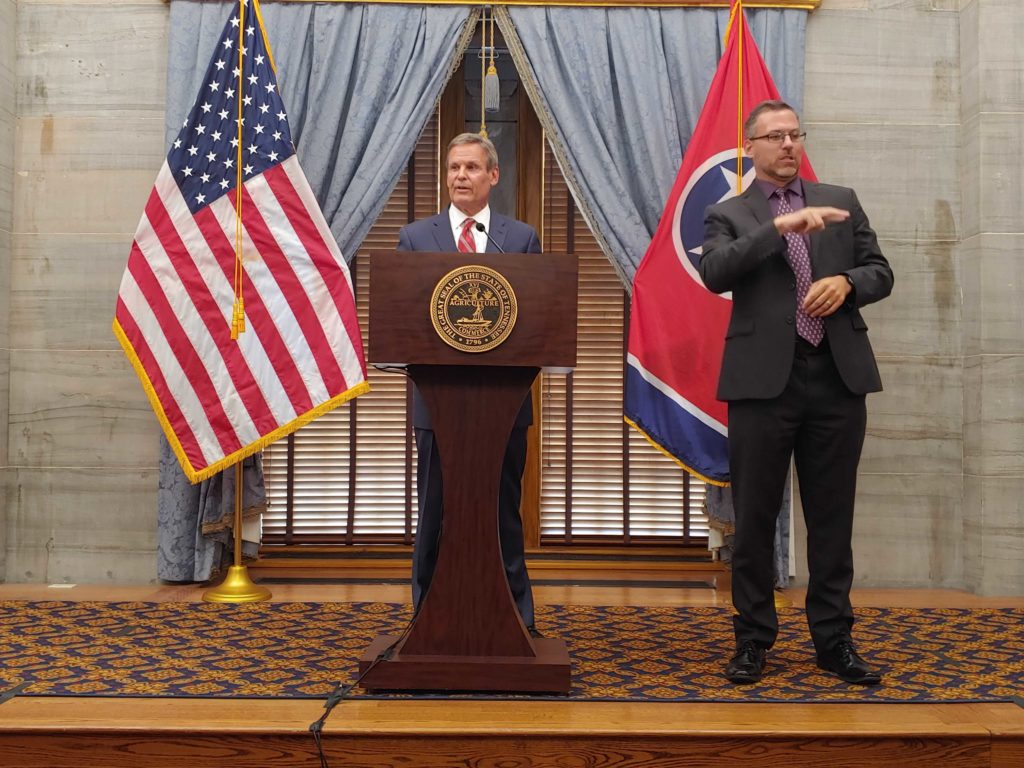
Gov. Bill Lee said on Wednesday afternoon that the bust of Nathan Bedford Forrest in the state Capitol should be moved to the Tennessee State Museum.
“Forrest represents pain and suffering and brutal crimes committed against African Americans,” Lee told reporters. “That pain is very real for many Tennesseans.”
The governor’s remarks come a day before the State Capitol Commission is to meet to vote on whether the monument should be removed from the building.
Forrest was a Confederate general and believed to be the first Grand Wizard of the Ku Klux Klan. His bust was dedicated in 1978 and was championed by then-state Sen. Douglas Henry, D-Nashville.
Lee told reporters he wants the state panel to consider whether the current placement of the monument helps people understand his full history.
“At a minimum, there should be context,” Lee said.
The governor says the story of Forrest is different from other Confederate soldiers. He said that’s the reason why many have been protesting it for over 40 years.
Forrest was a slave trader prior to the Civil War and served as the senior commander at the Battle of Fort Pillow, which ended in a massacre of Union troops, most of them Black.
Lee said he will present his proposal to the 12-member State Capitol Commission. This is the first time that the group is likely to vote for removal, in part due to Lee’s low-key work to set up a vote.
He recently appointed two Black men and reappointed Howard Gentry, another Black man, to the panel. In 2017, Gentry, voted to take the monument out of the Capitol.
Multiple groups, including the League of Women Voters of Tennessee, have urged for the removal of the bust. The state’s American Civil Liberties Union, too.
“As a brutal architect of structural racism, Nathan Bedford Forrest represents the forces that undermine the basic framework of civil liberties and civil rights in the United States,” the ACLU-TN said on a news release Wednesday. “Honoring him with a bust in our statehouse is antithetical to the values of decency, respect and equality that most Tennesseans share.”
But, even if the State Capitol Commission votes tomorrow in favor of the removal, that would not be the end of the debate.
According to state law, the Tennessee Historical Commission will have the last say. The whole process could take up to a year.

